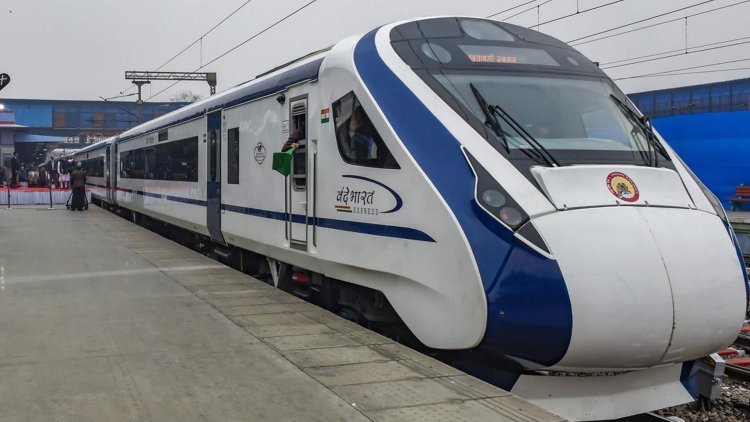By August, Indian Railways will release a tender for 200 Vande Bharat trains of the fourth generation
The third and fourth generations of the Vande Bharat trains will include sleepers and be about 15-20% more expensive than the second-generation Vande Bharat trains. The first two generations of the Vande Bharat trains only have a chair car seating style.

Indian Railways is in the final stages of preparing a tender to manufacture the fourth-generation Vande Bharat trains as part of the Indian government's goal to produce 400 Vande Bharat trains over the course of the following three years, as outlined in the Union Budget 2022–23.
According to a senior official in the Ministry of Railways, "the bidding documents for the fourth generation of 200 Vande Bharat trains have been finalised and we are planning to flog the tender by August."
He continued by saying that the tender for the fourth generation of Vande Bharat trains would be floated after Indian Railways commissions the first two prototypes of the second-generation Vande Bharat trains in August.
"Manufacturers should need about 18 to 20 months to develop a prototype before beginning a large-scale production. It is crucial to award the tender as soon as feasible in order to finish the order in a timely manner, "Added a different Ministry of Railways official.
Tender in two parts
The tender for 200 new trains will be released by Indian Railways in two sections. According to several government officials, the first 100 of the semi-high-speed Vande Bharat trains would feature a distributed power system, and the second 100 will have articulated bogies and a concentrated power car system.
The long-distance sleeper coach on the fourth generation of Vande Bharat trains would be composed of aluminium. Along with AC-1, AC-2, and AC-3 coaches, these new trains will include three classes.
Another senior official from the Railway Ministry added, "The request would be to upgrade the new trains over the last lot with the usage of aluminium and make them more energy efficient." He continued by saying that each train will be 40–80 tonnes lighter than third-generation Vande Bharat trains thanks to its aluminium body. This will result in less energy being used and more speed potential.
The Indian Railways has estimated that the price of each second-generation Vande Bharat train will be roughly Rs 115 crore. On the New Delhi-Katra and New Delhi-Varanasi lines, only two rakes of the first-generation Vande Bharat express trains are now running. The government intends to run Vande Bharat trains on the Shatabdi and Rajdhani routes since they can travel at speeds of up to 160 kmph on current tracks, which will shorten travel times.
The third and fourth generations of the Vande Bharat trains will include sleepers and be about 15-20% more expensive than the second-generation Vande Bharat trains. The first two generations of the Vande Bharat trains only have a chair car seating style.
Why is Vande Bharat?
16 self-propelled coaches comprise the semi-high-speed Vande Bharat train, which has no need for an engine. A distributed traction power system, which is what this is known as, is fast becoming the standard for passenger operations all over the world. Compared to loco-hauled trains, which take much longer to attain their highest speed or to progressively slow down, distributed power offers faster acceleration and deceleration.
Better seating, an antibacterial system for the air conditioning, less noise, the capacity to reach 160 km/h in 140 seconds, and other enhancements will be found on these trains.
Tender information
The selected bidder/bidders would be required to assemble 80 trainsets at the Integral Coach Factory in Chennai and 120 trainsets at the Marathwada Rail Coach Factory in Latur as part of the contract.
The tender will also have a maintenance clause and a 35-year contract for thorough annual maintenance of the trains.
For 102 Vande Bharat trains, Indian Railways has thus far granted contracts; delivery is expected to be finished by June 2024. Additionally, the national rail operator had issued a request for proposals for 200 third-generation Vande Bharat trains in April 2022.
Currently, Hyderabad-based Medha Servo Drives is slated to deliver about six second-generation Vande Bharat trains with 16 cars each every three months to Indian Railways. In August, the deliveries will start.




 admin
admin 




















